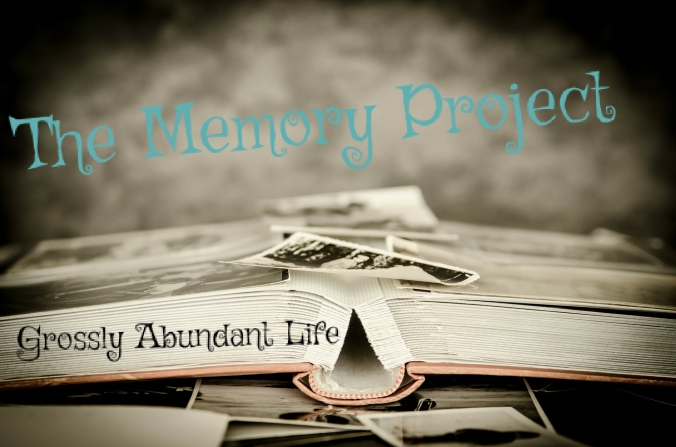
I want to share a thought I had awhile ago and posted on Facebook:
“Deep thoughts before 8 AM: I was reading a book yesterday and one part came back to me this morning. The dad and the kid were talking about, for the millionth time, how the kid’s parents met. It made me remember how I would hear the same stories from my grandparents, and sometimes parents, over and over. At the time, I thought it was boring to hear some of the same stuff millions of times. But I recently read an article about how much more we remember things, especially past events, when we rehash them regularly. So the grandparents knew what they were doing by telling stories over and over–they were keeping the memories strong.”
How many people do that today? Do people regularly relive parts of their lives? Does the phrase, “Remember when…” or, “There was this one time…” ever start sentences and conversations? I know I don’t reminisce much anymore because I’m so wrapped up in the day-to-day life. Does this mean I’m forgetting past thoughts, feelings, and events? Well, yeah.
I don’t know how connected reminiscing and memory are but it only makes sense that what is not remembered does not stay in the memory. Or it stays only to get muddled in with other memories and thoughts, and then turns into a different memory. It’s amazing to think about our ancestors many centuries ago who relied on verbal reminiscing to keep their history and heritage alive. Is it possible that future generations won’t have such a rich history because we don’t recall memories like people did back then? Or since there are so many ways to record events now–newspapers, magazines, the Internet–will we have a better and more accurate history to pass on to our children?
There is just something so rich and so real about verbal communication. I don’t think we can completely replace reminiscing and storytelling with the written word or even photographs. Nothing captures the feelings and emotions linked to a memory like the voice. Yes, words on a page can convey emotion, such as the pain of losing a love one or the excitement of becoming engaged, but there is so much language lost compared to actually hearing someone describe how that loved one died or how they became engaged. Flat, uniform words on a page give facts and information, and tell a story in a disconnected way. Rich, heartfelt words from a person’s mouth tell a memory.
I don’t know about you, but I’m going to start remembering and reminiscing more. And asking others to do the same. What will happen when our grandparents and great grandparents are gone and nobody thought to ask them what their childhood was like, how it felt to live during a world war, what their lifelong aspirations where? If we are lucky, they wrote a lot of it down (which is another post all together) and if not, it will be gone forever. My generation may very well lose, before ever gaining, a huge chunk of history. Find out now before it’s too late!
One last thought: maybe encouraging older generations to reminisce will help them in the long run. I found it funny that every Google search involving “repeating stories” and “memory” gives results talking about dementia and Alzheimers. I am beginning to think society’s view on repetition and storytelling is skewed. Maybe remembering is actually a good thing! So, “I will not again stop someone if I hear a story for the second, third, or millionth time. It would be doing them a great disservice!”